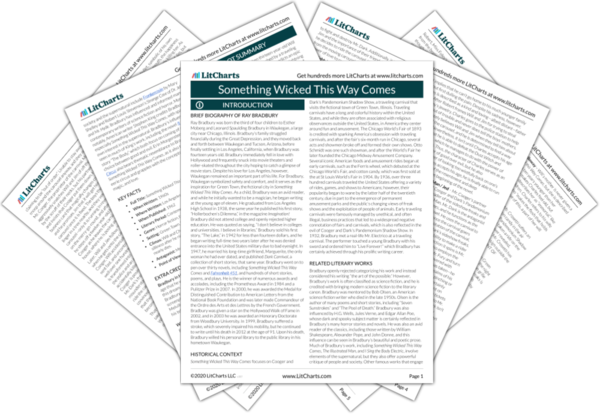Charles’s mention of Dante Alighieri is a reference to the epic poem
Inferno, which tells of Dante’s journey through hell. Jim’s response that allegory is “beyond” him is highly ironic, as Bradbury’s novel itself is largely allegorical. Jim’s interest in dinosaurs, a typical obsession of young boys, emphasizes his youth.
